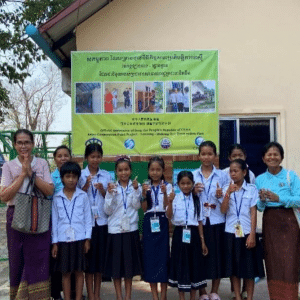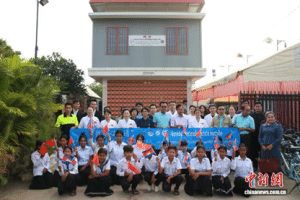According to a report by the Xinhua News Agency, the draft of the overseas NGO law (see here for CDB’s translation of the second draft of the Law) was submitted for its third reading on Monday to the bi-monthly session of the National People’s Congress (NPC) Standing Committee, which runs from Monday to Thursday. The NPC Law Committee suggested in a review report that the bill should be put for a vote at this session.
Xinhua reported that lawmakers held panel discussions to review the bill on Monday afternoon, joined by Zhang Dejiang, chairman of the NPC Standing Committee. According to a press release issued after the discussions, they agreed that the latest version of the bill, having incorporated opinions and proposals from different sides and the general public, had been notably improved with a balanced structure between facilitation and supervision.
Changes made to the bill during its third reading include, according to the Xinhua Report, removing the restriction limiting each NGO to a single office on the Chinese mainland, and the five year limit on operations of representative offices in China. The restrictions on staff and volunteers have also been removed, but tougher rules are imposed on finances.
The draft law targets the activities of NGOs founded outside of the Chinese mainland. However, exchanges and cooperation between Chinese and overseas colleges, hospitals and research institutes of science and engineering will follow existing regulations. The bill also allows the police to interview chief representatives and senior executives of overseas NGOs and force the Chinese partner to terminate a cooperation program if it is considered to undermine state security.



